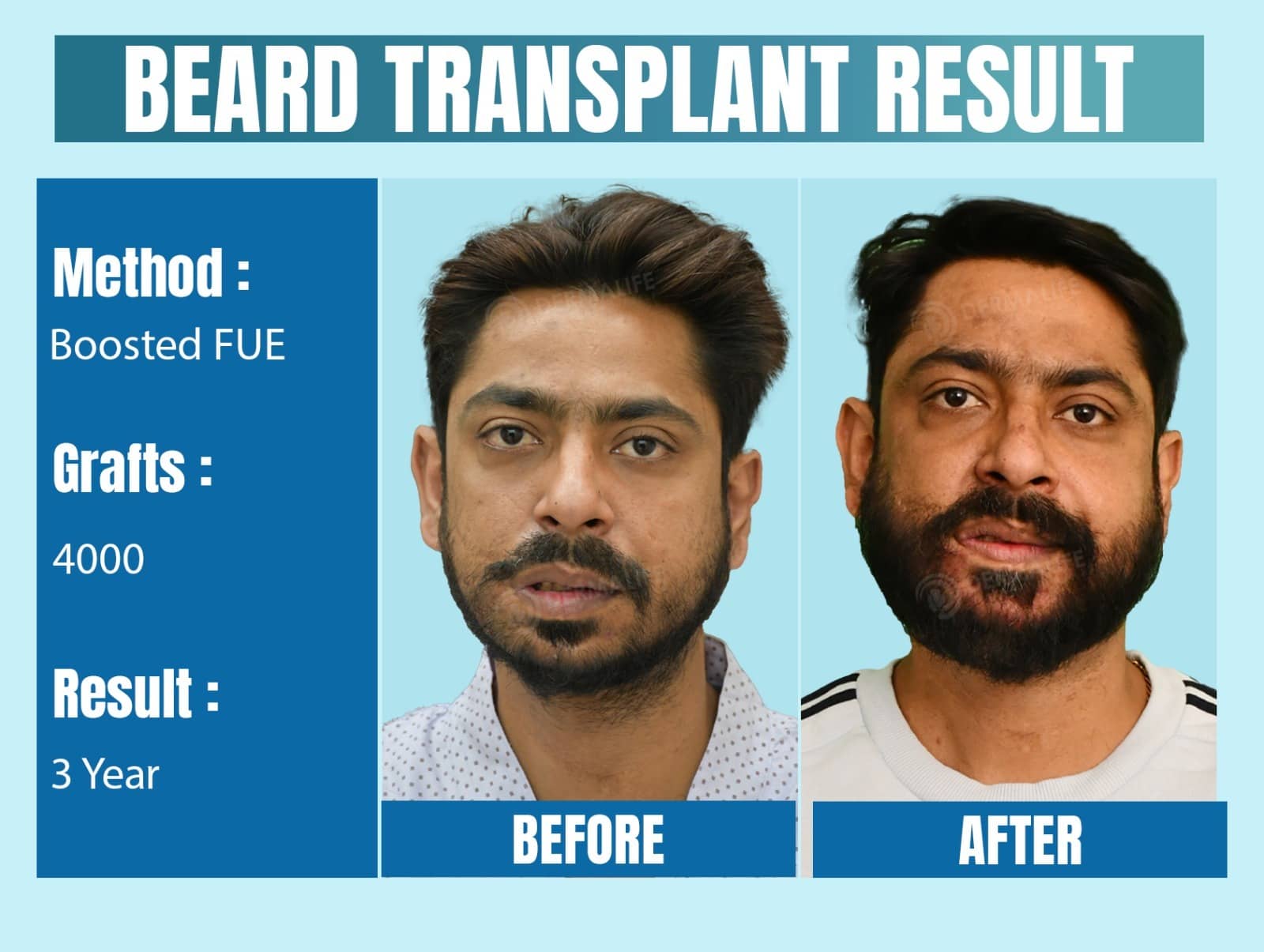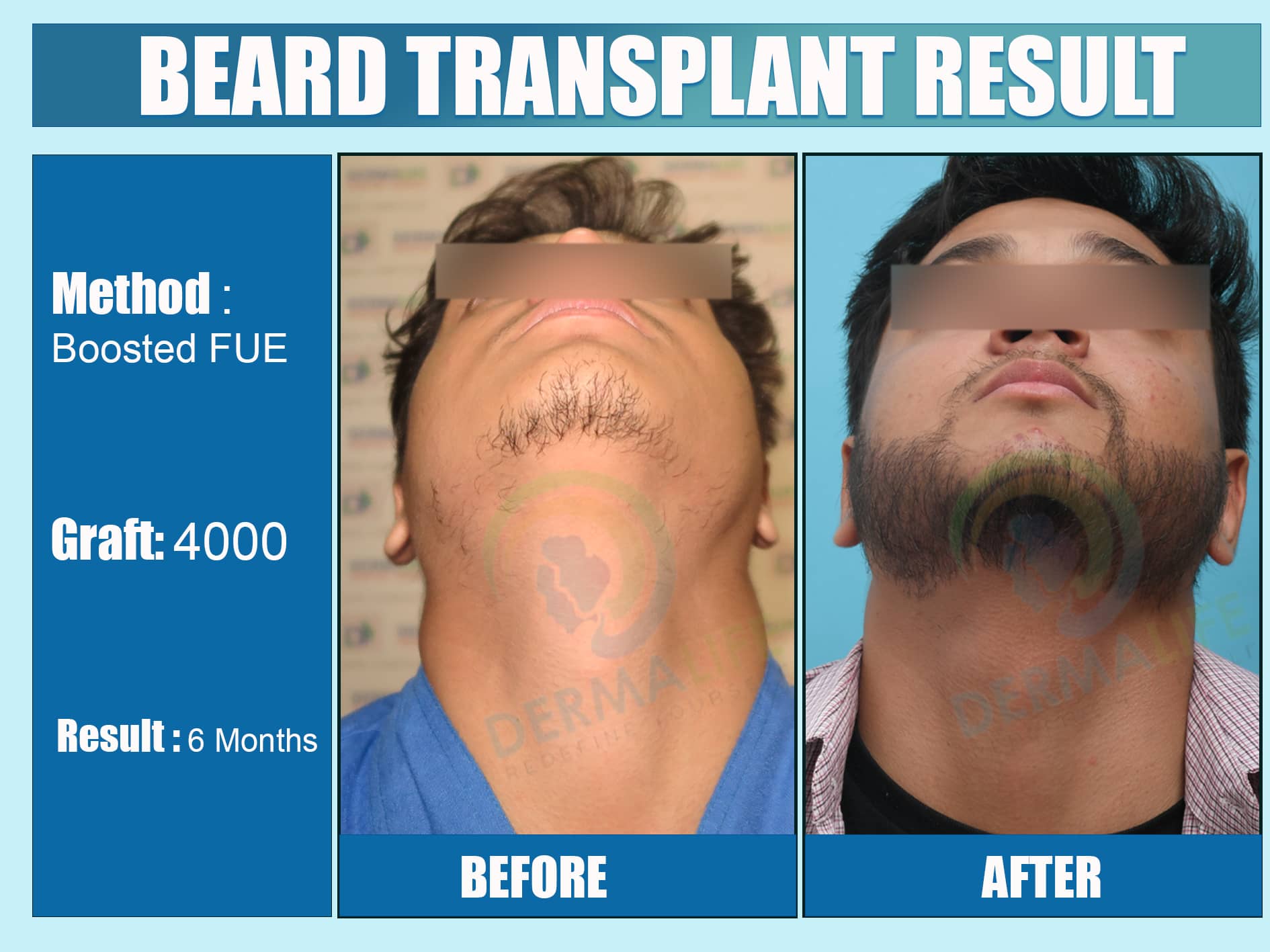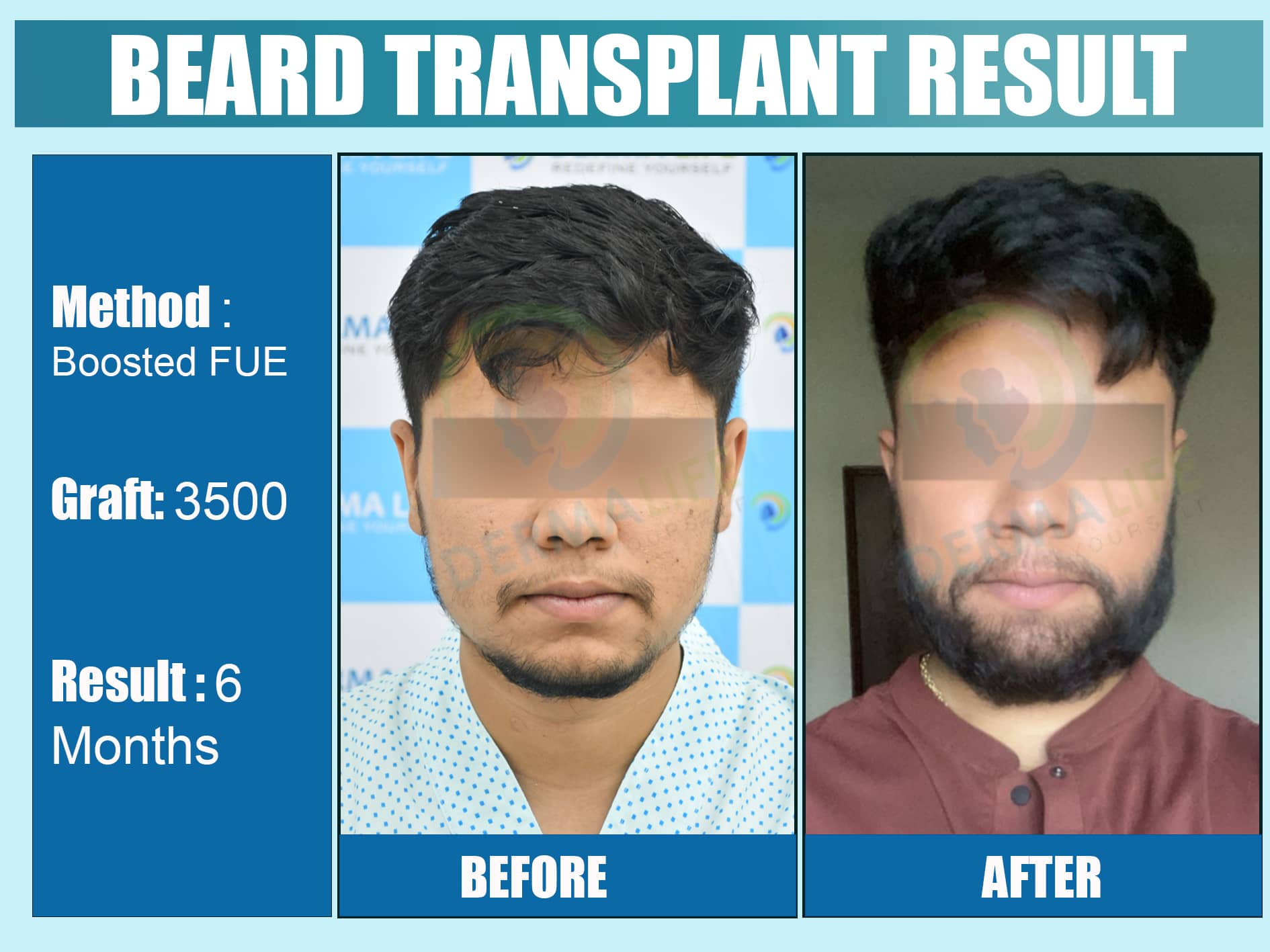



Beard Hair is prominently thick and is a very important part of grooming for men. While it allows you to enhance your look and groom yourself the way you want, some people have irregular growth on their beard and cannot get the desired look. Best Hair transplant in Delhi refers to the surgical procedure that helps in the restoration of hair in balding areas. This technique can also be used to restore beard hair. In the past few years, there has been a significant rise in the demand for beard hair transplants. Lack of facial hair growth or patchiness could be either genetic or due to an accident or surgery. A bushy beard is a sign of masculinity and machismo.
It is a common trend among guys to grow their beard a few years after puberty, but some have a hard time with it. Not just that, some men experience patchy growth of beard, making the entire look messy and not up to the mark. If you are struggling with the same, undergoing a beard hair transplant in Delhi seems like the absolute best option.
The medical field’s growth and advancements have enabled people to accentuate their looks based on their expectations. And, for several men, having a thick growth of beard is one of them. Getting the transplant done from a reliable the best beard hair transplant clinic in Delhi and under the supervision of an experienced cosmetic surgeon can do wonders for you.
Here, we will be discussing everything you need to know about beard transplants and whether it is a suitable option for your cosmetic needs.
If you are planning on undergoing a beard transplant, knowing about the procedure is worth considering. Have a transparent conversation with the cosmetic surgeon and talk about all the expectations and complications that you can expect after the procedure.
Beard transplant is a form of restorative hair procedure, wherein the extracted hairs from one part of the body are then implanted in the recipient site, in this case, the face.
You might want to consider undergoing a beard hair transplant if:

The number of grafts needed for the best beard transplant in Delhi is subjective and depends on the patient’s requirements. It will vary depending on the part of the facial hair that the surgeon is reconstructing.
For example, a patient might need somewhere between 300-500 grafts for reconstructing their mustache. In contrast, the total number of grafts required for the cheekbeard and sideburns can easily be around 1000-1500 grafts for the entire area.
Keep in mind that all of these numbers are tentative and the baseline numbers. They are generally more and will vary depending on the expectations of the patient. If the patient wants a more voluminous and fuller look, the number of grafts will be more.
Some individuals only need the transplant in a specific part of their face where there is no or minimal facial hair growth, while some patients need the beard implants done for their entire face. The cost of beard implants varies depending on that factor, too.
The procedure of the beard hair transplant in Delhi, India, is very similar to any standard hair transplantation procedure. Here’s what you can expect when you get a beard transplant in Delhi:
A sparsely grown beard can be made thicker and fuller by a beard hair transplant in India. The donor area can be the backside of the scalp or the beard area itself. You will enjoy your look after 5 to 6 months of the best beard hair transplant in India.
Men craving fuller and lustrous beards have a reason to rejoice as Dermalife Clinic offers beard hair transplants in Delhi at the most affordable rates. The surgeons are highly skilled and recognized for their work all over the country. They use advanced methods to ensure that the best results are achieved in minimal downtime.
The process of a beard hair transplant is relatively simple. The modus operandi and technique used in the transplant are very similar to those of a scalp transplant. Dr. Gaurav Garg uses minimally invasive procedures to restore hair thickness on different parts of the face. Firstly, the area where the beard has to grow is marked, which gives the doctor an idea of the area he has to work on. Then the hair follicle is extracted from the donor region, generally the back of the scalp, and then transplanted on the bald or patchy section of the beard. Dr. Gaurav Garg pays attention to the minutest details and ensures that the extracted hair is implanted at the right angle to give the beard a dense look. There is no bleeding, no cut, no scar, and the healing process is also faster. The outcome is enduring and looks normal. The transplanted hair will start growing naturally after some time, and you can even trim it or shave it.
Looking for the best beard hair transplant clinic in India? Dermalife in Delhi is a top-rated clinic known for delivering natural-looking and painless beard transplant results. With over 10,000 successful hair transplant procedures, including specialized beard restoration, Dermalife uses advanced techniques and cutting-edge technology to help you achieve a fuller, perfectly styled beard.
Much like any other standard hair transplantation procedure, even the donor hair for a beard transplant in India comes from the hair follicles present in the back of your head.
The back of the scalp is the chosen donor site because the hair growth is thickest around that region.
Most of the patients have very unrealistic expectations from beard hair transplants. If you think that the hair will start growing within a day or two after the surgery, you are mistaken. If you believe that the procedure will leave no pain and swelling, you are wrong on that part, too.
You can expect swelling, numbness, and a tingling sensation around the scalp and the face, where the implants have been placed.
Much like any other hair restorative surgery, you need to be extra careful after the beard hair transplant as well. The recovery period can range from 2-7 days after the surgery, during which you will notice the pain and the swelling go down eventually.
You might witness the formation of tiny crusts around the implanted follicles a day or two after the surgery, but these dry out and flake off quickly as well. Your surgeon should prescribe you antibiotics, anti-inflammatories, and analgesic medications to keep the pain and swelling in check. Ensure that you take them without fail.
You can normally shave after ten days, but make sure that you are gentle about the process and don't push the implanted hair follicles. The hair from the implanted follicles will shed within the 2-3 week mark, and that is normal. So, don't panic.
If you want to undergo the best beard hair transplant in Delhi, Dermalife is a leading aesthetic clinic with years of experience in this field. We'd suggest you choose Dermalife because:
The beard hair transplant cost in Delhi is subjective and depends on the requirements of the patients. Generally, the beard transplant price varies between INR 50,000 to INR 4,00,000, depending on the number of grafts and the extent of the surgery.
Book Free Consultation with Dr. Gaurav Garg